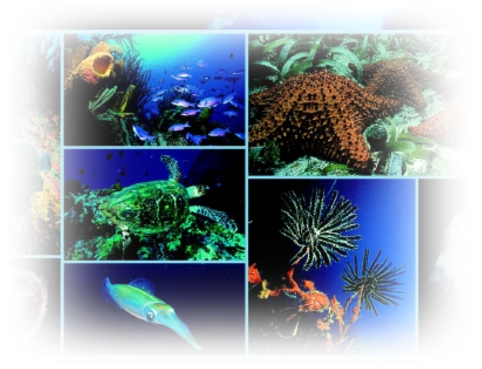Towards Sustainable Oceans

 |
At Rio+20 meeting, the United Nations Convention on Sustainable Development, the global leaders recognized that oceans, seas and coastal areas form an integrated and essential component of the Earth’s ecosystem and are critical to sustaining it. They stressed the importance of the conservation and sustainable use of the oceans and seas and of their resources for sustainable development, while at the same time protecting biodiversity and the marine environment and addressing the impacts of climate change.
The world then witnessed the commitment of global leaders to protect, and restore, the health, productivity and resilience of oceans and marine ecosystems, and to maintain their biodiversity, enabling their conservation and sustainable use for present and future generations, and to effectively apply an ecosystem approach and the precautionary approach in the management of activities having an impact on the marine environment, to deliver on all three dimensions of sustainable development.
Sustainable development of our oceans will require our consolidated efforts for addressing the global challenges threatening the sustainability of marine biodiversity. We need to bring together all the different communities of users at global, regional and national levels, and mainstream ecosystem-based, integrated and holistic approaches to the management of oceans.
That is why at its tenth meeting in Nagoya, Japan, the Conference of the Parties to the Convention adopted the new Strategic Plan for Biodiversity for the period 2011-2020, including 20 Aichi Biodiversity Targets, with three important targets for oceans, namely:
• Target 6: By 2020, all fish and invertebrate stocks and aquatic plants are managed and harvested sustainably, legally and applying ecosystem-based approaches;
• Target 10: By 2015, the multiple anthropogenic pressures on coral reefs, and other vulnerable ecosystems impacted by climate change or ocean acidification are minimized;
• Target 11: By 2020, at least 10 per cent of coastal and marine areas are conserved through protected areas.
The new Strategic Plan was adopted as the overarching global coordinated framework on biodiversity of the whole biodiversity family. The heads of agencies, including the heads of the biodiversity-related conventions as well as the heads of NGOs attending the Nagoya meeting endorsed this recommendation. Therefore the whole United Nations system with the support of civil society is in the process of assisting the 193 Parties in translating the Strategic Plan into national biodiversity strategies and action plans.
Moving toward sustainable ocean can happen only through the building of a shared vision and strong commitments toward conservation and sustainable use of marine biodiversity. Combined with innovative approaches for linking science with policy development and implementation through multi-stakeholder partnerships, these efforts will ensure a sustainable future for the oceans of the world. In order to assist Parties toward achieving this common vision, the Sustainable Ocean Initiative was launched as a global platform to build partnerships and enhance capacity to achieve the Aichi Biodiversity Targets related to marine and coastal biodiversity.
West-Africa, which hosts a diverse and extensive range of marine ecosystems spanning three important large marine ecosystems, presents a unique opportunity to operationalize the global partnerships of the Sustainable Ocean Initiative within a regional context.
By Mr. Braulio F. De Souza Dias
Executive Secretary, Convention on Biological Diversity.
